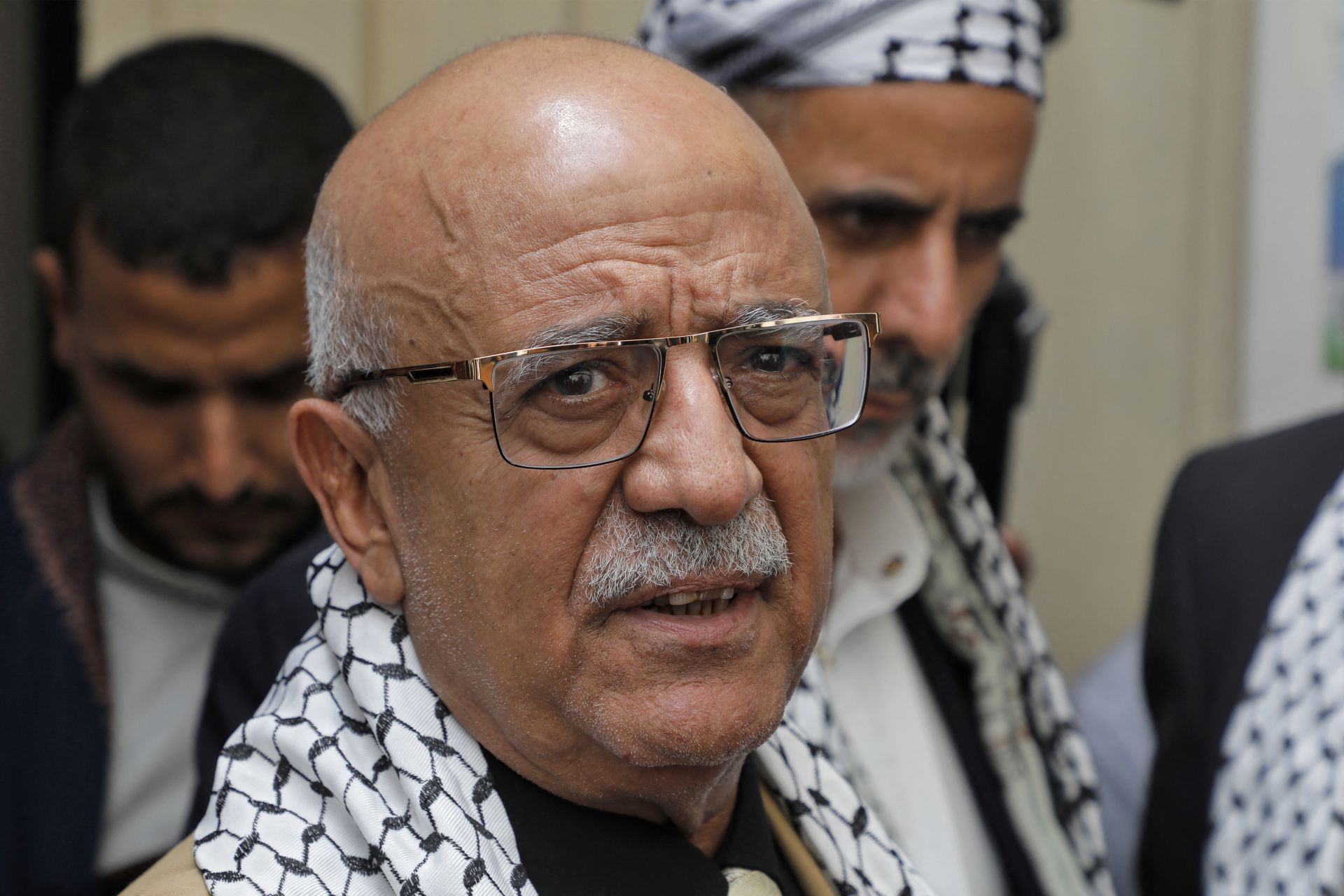- Home
- Middle East
- Houthis Claim Israeli Airstrikes Killed Yemen’s Prime Minister, Vow Revenge

The Prime Minister of Yemen's Houthi-run government, Ahmad al-Rahwi, wearing a Palestinian-style Keffiyeh visits the offices of the Palestinian militant group Hamas in the capital Sanaa on August 19, 2024. ©AFP
Yemen's Houthi vowed on Saturday to avenge the killing of their prime minister Ahmad Ghaleb Nasser Al-Rahwi and other political leaders in Israeli strikes on Thursday.
"We promise to God, to the dear Yemeni people and the families of the martyrs and wounded that we will take revenge," the head of the group's supreme political council, Mehdi al-Mashat, said in a video message posted on Telegram. He warned foreign companies to leave Israel "before it's too late".
The Houthis confirmed on Saturday said their prime minister had been killed in an Israeli airstrike, the most senior official known to have died in a series of attacks during the Gaza war.
Ahmad Ghaleb Nasser Al-Rahwi, who was appointed last year, was killed along with other officials in the Israeli attack on Thursday, the Iran-backed Houthis said.
Israel has been striking Houthi targets for months in response to missile attacks by the Yemeni militants, who claim solidarity with the Palestinians and have also been harassing shipping in the Red Sea.
"We announce the martyrdom of the fighter Ahmad Ghaleb Nasser Al-Rahwi... along with several of his ministerial colleagues, as they were targeted by the treacherous Israeli criminal enemy," a Houthi statement said.
"Others among their companions were injured with moderate to serious wounds and have been receiving medical care since Thursday afternoon," it added.
On Thursday, Israeli forces said they "struck a Houthi terrorist regime military target." Unsourced Yemeni media reports of Rahwi's death were not confirmed at the time.
The Houthis called the gathering that was hit "a routine workshop organized by the government to evaluate its activities and performance over the past year."
US-based Yemen analyst Mohammed Al Basha said the Israeli operation pointed to a change in strategy after previously targeting infrastructure such as ports and power stations.
"The strikes indicate a shift in Israeli operational focus away from transportation and energy infrastructure toward targeted assassinations of high-value personnel," Basha, author of the Basha Report, told AFP.
It is "an escalation that, regardless of the final casualty count, is likely to shake the Houthi leadership at its core," he added.
"This operation bears the hallmarks of a signals intelligence–driven strike, and it is possible that additional senior Houthi leaders were en route to the location."
Rahwi had made a public appearance on Wednesday, attending an event organized by the Houthi Ministry of Endowments in Sanaa.
He came from the southern province of Abyan, which is not part of the large swathes of Yemen under Houthi control.
The Yemeni militants have traditionally reserved the premiership for southerners in an attempt to win hearts and minds in the south.
Deputy prime minister Mohammed Ahmed Miftah was appointed as interim prime minister following Rahwi's death, the Houthis announced separately.
The Yemeni group is part of Iran's "axis of resistance," an anti-Israel alliance of militant groups across much of the Middle East.
AFP
Read more



Comments